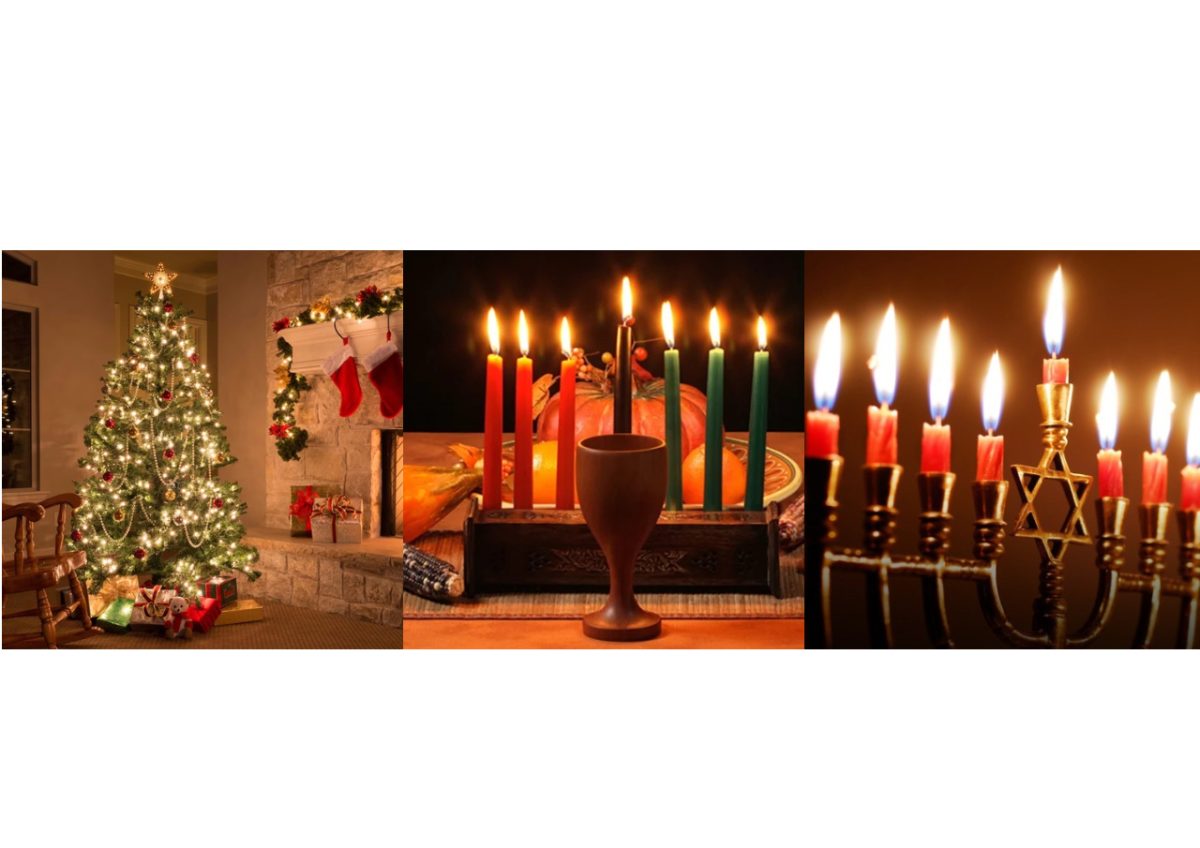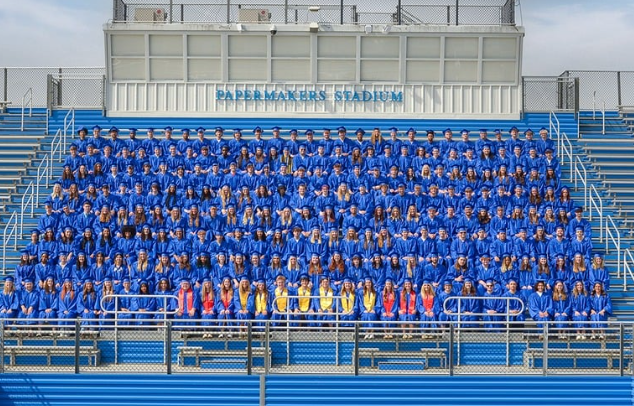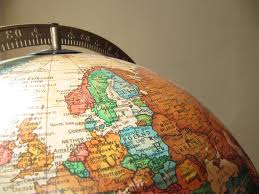All over the world, winter holidays such as Christmas, Hanukkah, and Kwanzaa are celebrated between Dec. 21 and Jan. 2 to commemorate religious traditions and figures and celebrate culture.
Christmas
Christmas is a festival celebrating Jesus’s birth celebrated by Christians and non religious people. The term Christmas literally means “mass on Christ’s day”. Christmas is celebrated Dec. 25 and was first identified as Jesus’ birth in 221 by Sextus Julius Africana’s and later became a worldwide accepted date although it may not be completely accurate. Christmas isn’t just a day of celebration but a season for many around the world to join together, celebrate the birth of Jesus, and give gifts. Santa Claus, also known as Saint Nicolas/Kris Kringle/Father Christmas, is also associated with the Christmas Holiday and is said to give gifts to good/well behaved children on the night before Christmas. Christmas decorations vary from the very popular Christmas tree, to stockings, snow, reindeer, and Santa. Christmas is the world’s most popular holiday and is celebrated in roughly over 160 countries.
Hanukkah
Hanukkah is a Feast of Dedication that people of the Jewish faith celebrate from Dec. 25 to Jan. 2. Hanukkah is celebrated for 8 days and reaffirms the ideals of Judaism and commemorates the rededication to the Second Temple of Jerusalem by lighting one candle on the menorah each day of the festival. Hanukkah commemorates the Maccabean (Hasmonean) victories over the Seleucid king. The Maccabean were the first Jews who fought to defend their religious beliefs rather than their lives. After the Jewish won the three year long battle, they cleaned and purified the Temple. A new altar was then put in the temple on Dec 25. Judas proclaimed that the dedication of the restored Temple should be celebrated every year for eight days beginning on Dec 25. People whom celebrate Hanukkah decorate with the colors blue and white, put up menorahs, lights and The Star of David (a six sided star that is on the flag of Israel and is associated with Judaism). 21 countries around the world celebrate Hanukkah.
Kwanzaa
Kwanzaa is an African affirmation of family and social values and is celebrated mainly in the USA from Dec 26 to Jan 1. Both the name and the celebration was devised in 1966 by Maulana Karenga, a professor of African studies. Each of the days of the celebration is dedicated to one of the seven principles of Kwanzaa: unity, self determination, collective work and responsibility, cooperative economics, purpose, creativity, and faith. On each of the days of the celebration the family comes together to light one of the candles in the Kinara (candleholder), and discuss the principle for the day. On Dec 31, families join in a community feast called the karamu. Some participants wear traditional African clothing for the feast. People who celebrate Kwanzaa decorate with Kinaras, African colors, and African decor. Kwanzaa is not a replacement for Christmas, nor is it a religious holiday. Kwanzaa is primarily an African American holiday celebrated in the United States , but is also celebrated in countries outside of the US, particularly in the Caribbean and other countries where there are large numbers of African descendants.
Work Cited








